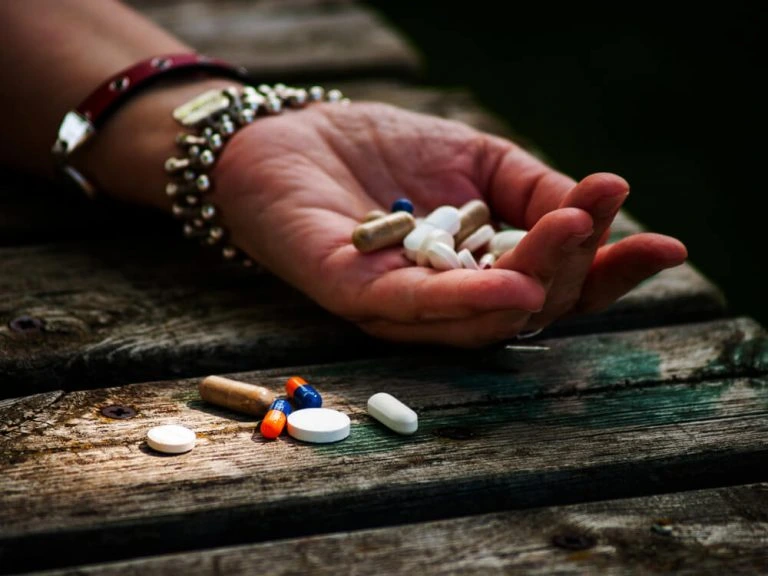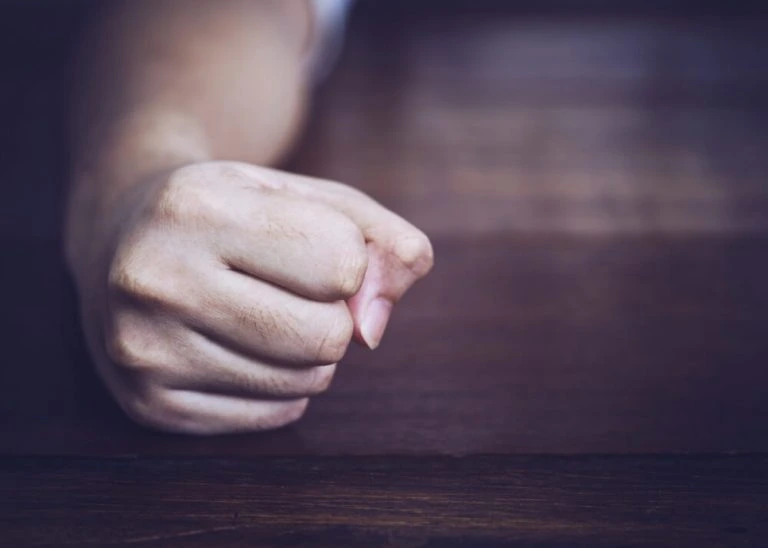Barbiturate Abuse Symptoms
In 2017, the United States suffered a record number of drug overdose deaths; more than 72,000 people lost their lives to substance abuse. Among the culprits in the high overdose rate is the central nervous system (CNS) depressant known as barbiturates. It is a powerful, addictive drug and any barbiturate abuse opens a person up to overdose risks.

Sedative Abuse: Barbiturate Abuse Symptoms, Dangers, and The Need for Treatment
In a National Institute on Drug Abuse (NIDA) research report, they warn that barbiturate abuse can lead to dependence, and even stopping the abuse of the drug at this point can cause life-threatening symptoms. In this article, we will examine what the drug is, barbiturates examples, the risks involved in the abuse of the drug, and addiction treatment for barbiturate abuse.
What is a Barbiturate?
The CNS depressants – also commonly referred to as a sedative – known as barbiturates are a prescribed medication that can be used to treat sleep disorders and anxiety among others. Due to the high risk of abuse and dangerous overdose risks, barbiturates are normally not prescribed for anxiety and sleep disorders even though they are effective at treating it. It is usually used in a medical setting to treat seizure disorders and during medical procedures.
CNS depressants work by affecting the GABA neurotransmitter, which is used as a communication tool by the brain. GABA neurotransmitters are the same system that are affected by heavy alcohol use. When GABA increases, brain activity slows causing a calming and drowsy affect on the user. Barbiturates generally come in a tablet or injectable solution.
Barbiturates Examples
There are several types of barbiturates that are sold as a prescription. The different types of barbiturates have the same effect on the brain with the main difference usually being in how fast- or slow-acting they are. The most commonly sold brand names include:
- Mebaral
- Luminal Sodium
- Nembutal
- Amobarbital
- Tuinal
- Secobarbital
- Pentobarbital
- Phenobarbital
Barbiturates Street Names
Due to the effects that the drugs have on a person outside of the acceptable medical use – i.e. the “high” it gives – it is also sold illegally and abused by many people. As with other illegally sold drugs, barbiturates street names have been created over the years that it has been abused for. Names tend to vary based on the specific brand name and design. While new names are constantly given to illegal drugs, some of the common street names include the following:
- • Purple hears
- Goof balls
- Downers
- Blue velvet
- Blue devils
- Rainbows
- Tooies
- Double trouble
- F-66s
- Nembies
- Abbots
- Mexican yellows
- Lilly
- Pink ladies
- Seggy
Dangers of Barbiturate Abuse
While barbiturate abuse tends to be lower than drugs such as marijuana and opioids, there are still many people struggling with an addiction. While it is most frequently abused for the effects it has on a person, people also abuse it in place of other drugs or to counteract the symptoms they experience from other drugs. The people who are most susceptible to the dangers of misuse of barbiturates are the elderly and the young, but the powerful substance can cause problems in any individual.
As a scheduled drug, there are many dangers when a person misuses it. In the 1970s, the public learned about the dangers the drug was the hard way – through fatal overdose. Another CNS depressant then entered the scene – benzodiazepines – which was safer than barbiturates. Of course, abuse of the drug didn’t disappear and it is still abused today, and those who abuse it open themselves up to many risks, which include the following:
- Severe confusion
- Vomiting
- Poor coordination
- Headaches
- Memory problems
- Respiratory arrest
- Decreased brain function
- Poor judgement
Overdose Complications
The overdose risk of barbiturate abuse is not something to take lightly. According to MedlinePlus – a government health information source – 1 in 10 people who have an overdose on the drug will end up dying. The most common cause of death in these cases is respiratory or heart problems. Further complications that an overdose can cause include the following:
- Coma
- Head injuries caused by falling due to the poor coordination, or “drunk” effect of the drug
- Pneumonia caused by the depressed state of important bodily functions such as the gag reflex
- Severe muscle damage from being immobile on a hard surface for too long, which in turn can lead to permanent damage to the kidneys
- Spinal and neck injuries due to poor coordination resulting in falling
- Miscarriage or developmental problems in an unborn baby
- Death
If a person who has abused barbiturates exhibits signs of breathing problems or they are excessively tired, then call your local emergency services immediately, such as 911. One should never risk the chance of an overdose taking the life of a person just because you fear what the repercussions may be.
Barbiturate Addiction Treatment
It is clear that the abuse of barbiturates is a serious concern, and any addiction or dependence requires barbiturate addiction treatment as soon as possible to prevent any further damage from taking place, or a fatal overdose occurring.
There is no safe way to beat an addiction to the substance alone because of the severe effect it has with repeated abuse. The main problem with stopping its abuse alone are the withdrawal symptoms, which can be life-threatening – unlike benzodiazepines, according to NIDA. The withdrawal symptoms that occur when stopping include the following:
- Severe fevers
- Agitation
- Sleep disturbances
- Seizures
- Vivid hallucinations
- Anxiety
- Vomiting
- Nausea
- Tremors
The way that barbiturate addiction treatment can assist is through the use of medications in a medical detox program. Both over-the-counter (OTC) and FDA-approved prescription medication is used during a medical detox. OTC medication tends to be used for the lesser symptoms such as nausea and vomiting, while prescription medication tends to be used to help tapper the person off the drug by using safer, controlled alternatives. During the detox, the patient will be monitored around the clock to ensure their wellbeing.
Inpatient Rehab
Inpatient rehab is one of the best options for treating an addiction. After the detox, the person then participates in various forms of therapy to help them understand why they abused the drug and how to prevent further abuse. Inpatient rehab tends to be used by people with a severe addiction with little to no support in their home environment.
Outpatient Rehab
Another excellent option for treatment is an outpatient rehab center. Of course, there may be a short medically-supervised stint at the facility required to deal with the withdrawal symptoms, but then the patient can continue to carry on with their responsibilities such as work while completing their treatment. Outpatient rehab is ideal for people who have a good support network that they can rely on during their recovery.
If you or a loved one is struggling with addiction, get help right away. Make a phone call that will connect you to a professional drug treatment center. The call you make may save your life or the life of someone you love. Call us today at (800) 429-7690.




